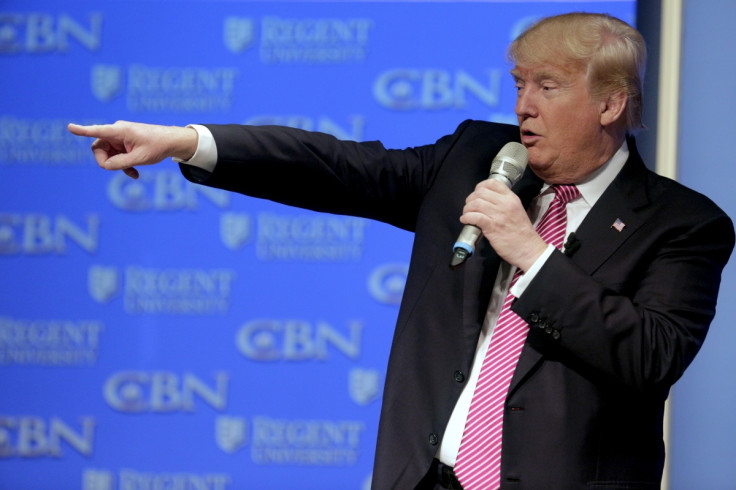Donald Trump says he wants 'somebody that's political' as his running mate

As the possibility of Republican presidential candidate Donald Trump winning his party's nomination becomes more likely, many are wondering who the bombastic former reality TV star will choose as his running mate. During a Q&A session at Regent University in Virginia, Trump did not give any names but did provide some insight into who exactly he wants as his vice president.
"I do want somebody that's political, because I want to get lots of great legislation we all want passed," he said. "We're going to probably choose somebody that's somewhat political."
According to CNN, the billionaire real estate mogul declined to name any names, noting that it is "too early" to pick. Trump, did however, tease that some of his fellow GOP rivals could make the short list. "Some of the people I've dealt with, I do have a lot of respect for," he said.
The winner of two primaries and one caucus said the "main quality" he seeks in a running mate is someone who could be a "great president" were something to happen to him. "I'd want someone who could help me with governing," the political outsider said. "You want somebody that can help you with legislation, getting it through."
However, he said that despite having a background primarily in business, he has dealt with politics in the past. "I'm also very, very political," he said. "When you can get zoning on the West Side of Manhattan to build almost 6,000 units of housing and you have to go through New York City politics, believe me that's tough."
Trump is coming off three straight landslide wins in Nevada, South Carolina and New Hampshire. His recent wins have pushed him ahead of remaining Republican hopefuls, giving him 82 delegates of the 1,237 delegates needed to win the party's nomination. He's followed not-so-closely behind by Ted Cruz with 17 delegates and Marco Rubio with 16 delegates. The remaining two candidates—John Kasich and Ben Carson—have less than 10 delegates each.
All five candidates will have a chance to surge forward on 1 March, otherwise known as Super Tuesday, when 13 states will decide who their nominee will be.
© Copyright IBTimes 2025. All rights reserved.





















